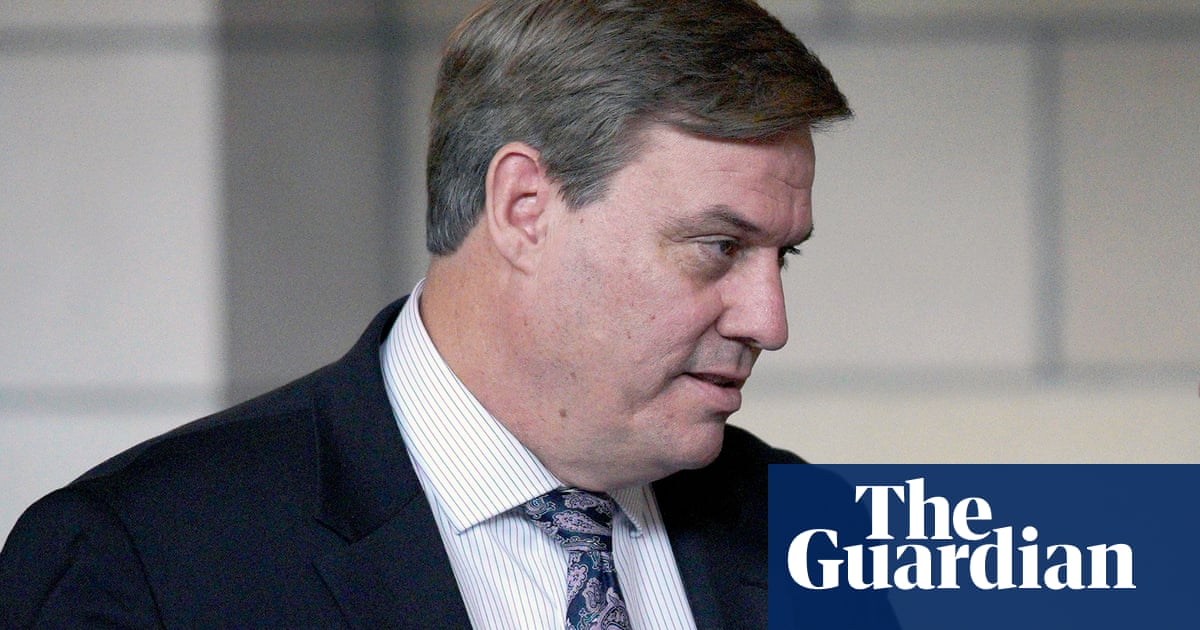A Republican attempt to change the electoral system in Nebraska to give Donald Trump a possible advantage in the event of a tied presidential election has been rebuffed after a state legislator refused to back the plan.
Mike McDonnell, a former Democrat who crossed to the Republican party this year, said he would not vote to change the midwestern state’s distribution of electors to the same winner-takes-all process that operates in most of the US.
His decision followed intense lobbying from both Republicans and Democrats, who anticipated that a change in the allocation of Nebraska’s five electoral college votes could have have a decisive impact on the outcome of the 5 November poll.
It reduces the possibility that the former president and Kamala Harris could be tied on 269 electoral college votes each, a scenario that would throw the final say on the election’s outcome to the House of Representatives.
A tie scenario could have arisen if Trump earned five electoral votes – rather than four, as expected under the present set-up – from winning Nebraska, then won the four “Sun belt” states of North Carolina, Georgia, Nevada and Arizona, while the vice-president carried the northern battlegrounds of Pennsylvania, Michigan and Wisconsin.
US presidential elections are not decided by the popular vote nationwide but by which candidate wins a majority of 538 electoral college votes, usually awarded to the winner of the popular vote in each state.
Nebraska’s Republican legislators, egged on by Republicans on Capitol Hill, proposed to change the distribution of electors to ensure that Trump would be awarded all five electoral votes if, as expected, he wins the solidly pro-Republican state.
That would have upended the status quo under which Nebraska, unlike every other state apart from Maine, splits its allocation to give two to the presidential candidate that wins the popular vote while awarding the other three on the basis of who prevails in each of its three congressional districts.
The state’s second congressional district, covering its biggest city, Omaha, was won by Joe Biden in 2020, a feat Harris hopes to emulate.
The spotlight had fallen on McDonnell, a former firefighter and the chair of Omaha’s federation of labour, because his support would have provided the two-thirds majority needed in the state legislature to change Nebraska’s distribution system law, which has operated since 1992.
after newsletter promotion
In a statement, McDonnell, who had seemed to wavering in recent days from his earlier vow not to vote to restore the winner-takes-all system, made it plain that he had not moved from his original position.
“Elections should be an opportunity for all voters to be heard, no matter who they are, where they live, or what party they support,” he said. “I have taken time to listen carefully to Nebraskans and national leaders on both sides of the issue. After deep consideration, it is clear to me that right now, 43 days from election day, is not the moment to make this change.”
His announcement came despite a meeting with the Republican senator Lindsey Graham, a close Trump ally, who travelled to Nebraska last week to lobby local legislators, and appeared to end plans by Jim Pillen, Nebraska’s governor, to call a special legislative session to change the law.
“With Mike McDonnell being an absolute no, that kind of closes the lid,” the Republican state senator Loren Lippincott told the Nebraska Examiner newspaper.
McDonnell’s stance won praise from a former ally, Jane Kleeb, the chair of Nebraska’s Democrats, who hailed him for “standing strong against tremendous pressure from out-of-state interests to protect Nebraskans’ voice in our democracy”.

